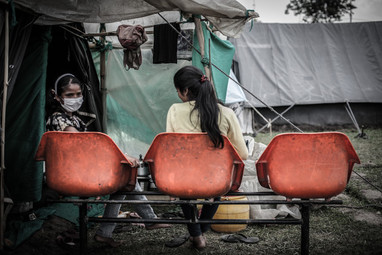
"Everybody expects that survivors will be traumatized by a disaster. But few relief groups specifically address the mental toll of disasters—both natural and man-made. That’s because mental wounds are, in many ways, more difficult to treat than physical ones: They can’t be set right like broken bones, they can’t be inoculated with shots, and they can only be numbed for so long with pills. This makes mental care hard to plan for and hard to raise money for, because its indefinite successes and indeterminate timetables aren’t as appealing to the donors that fund disaster response.
It’s crucial, though, to address survivors’ mental health early and often. These people may not carry their wounds physically at first, but the problems do eventually manifest. If stress goes untreated, it can sabotage short term gains by letting PTSD, anxiety and depression fester. And those can lead to more tangible threats, like diabetes, hypertension, and stroke."
 RSS Feed
RSS Feed
